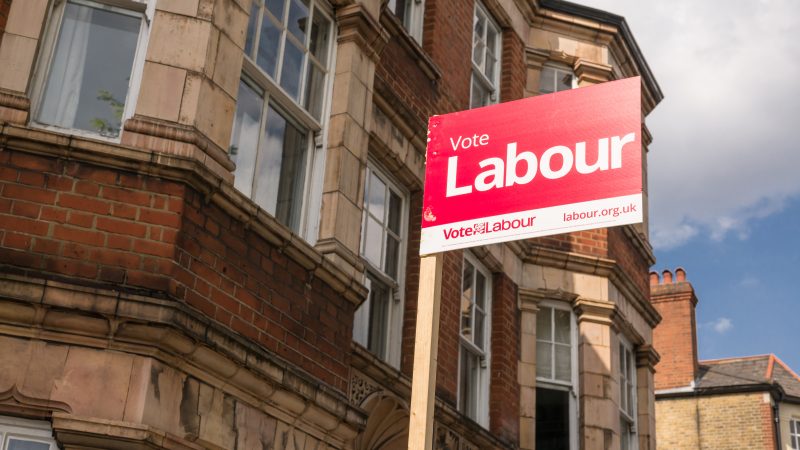
From an NHS on its knees to failing public services to an out-of-control cost-of-living crisis, the Tories have broken Britain. As a result, Labour is riding high in the polls, offering an unprecedented opportunity to transform our country for the better.
That’s why Labour members and trade unions are united behind an ambitious vision to transform Britain. Every poll, every conference vote and every strike shows a hunger for something more: for a £15/h minimum wage, to public ownership of our water, energy and rail, funded by wealth taxes.
What’s more, the public strongly back these policies too, after more than a decade of Tory austerity. But the Labour leadership are determined not to listen.
This was on full display at the National Policy Forum (NPF) last weekend. Trade unions and members from across the party brought forward bold amendments to tackle the social crises raging in Tory Britain, from the scrapping of the heinous two-child benefit limit to universal free school meals for all primary school children.
However, the leadership dismissed them from the start as “unfunded” spending commitments, and briefed that no amendment with spending implications would be allowed to make it through. In this context, the NPF was not a meaningfully democratic space. Other urgent policies sacrificed to this rule included mass council house building, public ownership of water and the abolition of tuition fees.
Meanwhile, even New Labour policies like defending Sure Start from Tory cuts were rejected. Of course, we’re now even seeing Starmer’s own policies watered down for this reason, chief among them green investment.
The leadership’s claim that these policies are ‘unaffordable’ simply doesn’t stack up, however. A recent report from Tax Justice UK outlined how wealth taxes could raise £50bn, from applying national insurance to investment income to equalising capital gains with income tax. All in all, wealth taxes enjoy overwhelming support, with 78% backing a wealth tax on those with £10m in assets, and a further 62% supportive of equalising tax on income from work and from wealth.
One of the few remaining flagship Labour policies is the New Deal for Working People. Alarmingly, though, we read over the weekend that Labour’s previous commitment to a single tier of worker has now been abandoned, with age bands for under-18s remaining in place, despite unanimous trade union support for scrapping them, leading to a justifiably angry response from trade unions.
Together with the apparent retreat on Fair Pay agreements, this amounts to an effective watering down of the New Deal for Working People. With Unite rejecting the final NPF report, and union calls for a £15/h minimum wage also rejected, this was very far from a united agreement.
However, it wasn’t all doom and gloom. With effective organising and strong commitment from delegates, left-wing reps managed to extract some small but significant wins.
Together with the NEC Disabled members’ rep Ellen Morrison, Disability Labour helped secure concessions towards disability justice. These include the adoption of the social model on disability and a promise that Labour will co-produce policy with disabled people.
In addition, the party has now included honouring its commitments to the United Nations Convention on the Rights of Disabled People – having been notably missing from the policy document before.
And although the leadership disappointingly refused to scrap the two-child benefits limit, despite huge uproar in the party, meaningful improvements to social security were secured, with the party programme now committed to ending punitive sanctions as well as sanctions for benefits recipients who miss appointments due to transport delays. We won’t stop campaigning for more, though.
It doesn’t end there. Labour’s plans to modernise and reform the Gender Recognition Act made headlines last month. The party’s decision to U-turn on self-identification is deeply damaging, but it could have been worse still.
Plans to simplify the transition process, fully ban conversion practices for trans people without exception, and to include non-binary people in any future legislation are the welcome fruit of delegates’ hard-work. Plus, an amendment committing Labour to lead global efforts to tackle unsustainable debt in global south countries, an important act of internationalist solidarity, was hammered out and included.
The Tories’ array of repressive, anti-democratic legislation on policing, powers and protest have largely been opposed by Labour, but the leadership is inexplicably won’t commit to repealing them, despite their lack of cost.
A commitment to review voter ID was a start, however, extracted by the hard-work of left-wing reps – but we don’t need a review to tell us this blatant act of Tory gerrymandering needs to go.
Britain deserves better than the fiscal and political conservatism currently espoused by the leadership. And Labour members deserve more than this anti-democratic status quo, embodied in NPF reps being banned from discussing the process for months on end. The result is Labour members being denied the transparency Keir once promised, and to which they are entitled.
The battle for bold, transformative policies to bring an end to Tory destruction is far from over. It’s up to the Left to champion policies for the many, not just a select few. As Labour conference fast approaches, we encourage Labour members to keep championing the policies we need, from free school meals to a kinder benefits system to public ownership. And the more the crises affecting Britain go unresolved, the more attractive will be the left’s policies.
In his NPF speech, Keir rightly invoked the need to emulate the post-war Attlee government in addressing the huge crises facing us. But for as long as he fails to follow through with the kind of sweeping investment and transformative change brought about after 1945, we won’t be silent.




More from LabourList
Economic stability for an uncertain world: Spring Statement 2026
‘Biggest investment programme in our history’: Welsh Labour commit to NHS revamp if successful in Senedd elections
James Frith and Sharon Hodgson promoted as government ministers